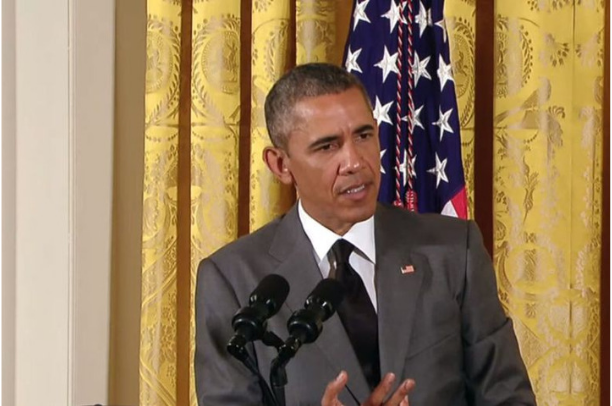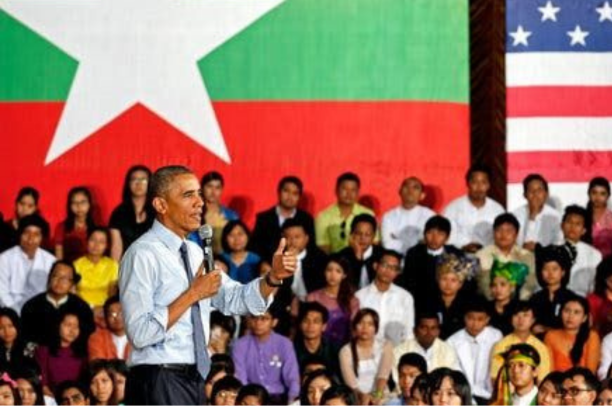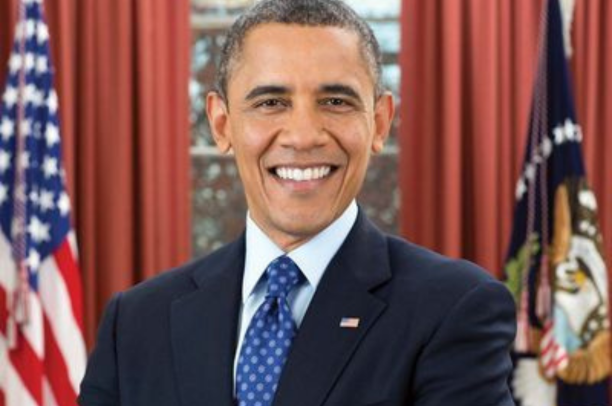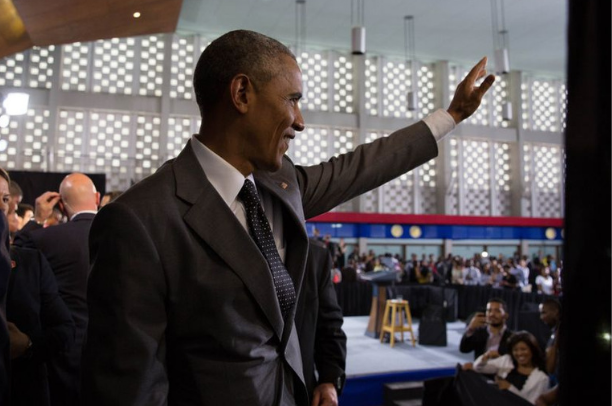Press Conference on USSC Ruling in U.S. v. Texas
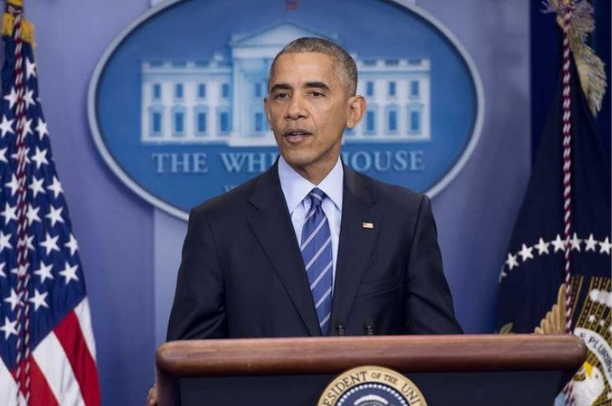
President Obama addressed the press following the Supreme Court’s deadlock in the case of U.S. v. Texas, expressing disappointment and highlighting the need for comprehensive immigration reform. He emphasized the importance of congressional action and criticized the obstruction of judicial nominations.
Want to learn more about storytelling? Start by downloading the first chapter of The Storytelling Mastery.
Good morning, everybody. I wanted to say a few words on two of the cases the Supreme Court spoke on today.
First, in the affirmative action case, I’m pleased that the Supreme Court upheld the basic notion that diversity is an important value in our society, and that this country should provide a high-quality education to all our young people, regardless of their background. We are not a country that guarantees equal outcomes, but we do strive to provide an equal shot to everybody. And that’s what was upheld today.
To learn more, see the full series: Barack Obama Speeches.
Second, one of the reasons why America is such a diverse and inclusive nation is because we’re a nation of immigrants. Our Founders conceived of this country as a refuge for the world. And for more than two centuries, welcoming wave after wave of immigrants has kept us youthful and dynamic and entrepreneurial. It has shaped our character, and it has made us stronger.
But for more than two decades now, our immigration system, everybody acknowledges, has been broken. And the fact that the Supreme Court wasn’t able to issue a decision today doesn’t just set the system back even further, it takes us further from the country that we aspire to be.
Just to lay out some basic facts that sometimes get lost in what can be an emotional debate. Since I took office, we’ve deployed more border agents and technology to our southern border than ever before. That has helped cut illegal border crossings to their lowest levels since the 1970s. It should have paved the way for comprehensive immigration reform. And, in fact, as many of you know, it almost did. Nearly 70 Democrats and Republicans in the Senate came together to pass a smart, common-sense bill that would have doubled the border patrol, and offered undocumented immigrants a pathway to earn citizenship if they paid a fine, paid their taxes, and played by the rules.
You might like Statement on the Orlando, Florida Shootings
Unfortunately, Republicans in the House of Representatives refused to allow a simple yes or no vote on that bill. So I was left with little choice but to take steps within my existing authority to make our immigration system smarter, fairer, and more just.
Four years ago, we announced that those who are our lowest priorities for enforcement — diligent, patriotic young DREAMers who grew up pledging allegiance to our flag — should be able to apply to work here and study here and pay their taxes here. More than 730,000 lives have been changed as a result. These are students, they’re teachers, they’re doctors, they’re lawyers. They’re Americans in every way but on paper. And fortunately, today’s decision does not affect this policy. It does not affect the existing DREAMers.
Two years ago, we announced a similar, expanded approach for others who are also low priorities for enforcement. We said that if you’ve been in America for more than five years, with children who are American citizens or legal residents, then you, too, can come forward, get right with the law, and work in this country temporarily, without fear of deportation.
Both were the kinds of actions taken by Republican and Democratic Presidents over the past half-century. Neither granted anybody a free pass. All they did was focus our enforcement resources — which are necessarily limited — on the highest priorities: convicted criminals, recent border crossers, and threats to our national security.
Now, as disappointing as it was to be challenged for taking the kind of actions that other administrations have taken, the country was looking to the Supreme Court to resolve the important legal questions raised in this case. Today, the Supreme Court was unable to reach a decision. This is part of the consequence of the Republican failure so far to give a fair hearing to Mr. Merrick Garland, my nominee to the Supreme Court. It means that the expanded set of common-sense deferred action policies — the ones that I announced two years ago — can’t go forward at this stage, until there is a ninth justice on the Court to break the tie.
I know a lot of people are going to be disappointed today, but it is important to understand what today means. The deferred action policy that has been in place for the last four years is not affected by this ruling. Enforcement priorities developed by my administration are not affected by this ruling. This means that the people who might have benefitted from the expanded deferred action policies — long-term residents raising children who are Americans or legal residents — they will remain low priorities for enforcement. As long as you have not committed a crime, our limited immigration enforcement resources are not focused on you.
You might be interested in Counter-ISIL Meeting Briefing
But today’s decision is frustrating to those who seek to grow our economy and bring a rationality to our immigration system, and to allow people to come out of the shadows and lift this perpetual cloud on them. I think it is heartbreaking for the millions of immigrants who’ve made their lives here, who’ve raised families here, who hoped for the opportunity to work, pay taxes, serve in our military, and more fully contribute to this country we all love in an open way.
So where do we go from here?
Most Americans — including business leaders, faith leaders, and law enforcement, Democrats and Republicans and independents
— still agree that the single best way to solve this problem is by working together to pass common-sense, bipartisan immigration reform.
That is obviously not going to happen during the remainder of this Congress. We don’t have is a Congress that agrees with us on this. Nor do we have a Congress that’s willing to do even its most basic of jobs under the Constitution, which is to consider nominations. Republicans in Congress currently are willfully preventing the Supreme Court from being fully staffed and functioning as our Founders intended. And today’s situation underscores the degree to which the Court is not able to function the way it’s supposed to.
The Court’s inability to reach a decision in this case is a very clear reminder of why it’s so important for the Supreme Court to have a full bench. For more than 40 years, there’s been an average of just over two months between a nomination and a hearing. I nominated Judge Merrick Garland to the Supreme Court more than three months ago. But most Republicans so far refuse to even meet with him. They are allowing partisan politics to jeopardize something as fundamental as the impartiality and integrity of our justice system. And America should not let it stand.
This is an election year. And during election years, politicians tend to use the immigration issue to scare people with words like “amnesty” in hopes that it will whip up votes. Keep in mind that millions of us, myself included, go back generations in this country, with ancestors who put in the painstaking effort to become citizens. And we don’t like the notion that anyone might get a free pass to American citizenship. But here’s the thing. Millions of people who have come forward and worked to get right with the law under this policy, they’ve been living here for years, too — in some cases, even decades. So leaving the broken system the way it is, that’s not a solution. In fact, that’s the real amnesty. Pretending we can deport 11 million people, or build a wall without spending tens of billions of dollars of taxpayer money is abetting what is really just factually incorrect. It’s not going to work. It’s not good for this country. It’s a fantasy that offers nothing to help the middle class, and demeans our tradition of being both a nation of laws and a nation of immigrants.
In the end, it is my firm belief that immigration is not something to fear. We don’t have to wall ourselves off from those who may not look like us right now, or pray like we do, or have a different last name. Because being an American is about something more than that. What makes us Americans is our shared commitment to an ideal that all of us are created equal, all of us have a chance to make of our lives what we will. And every study shows that whether it was the Irish or the Poles, or the Germans, or the Italians, or the Chinese, or the Japanese, or the Mexicans, or the Kenyans — whoever showed up, over time, by a second generation, third generation, those kids are Americans. They do look like us — because we don’t look one way. We don’t all have the same last names, but we all share a creed and we all share a commitment to the values that founded this nation. That’s who we are. And that is what I believe most Americans recognize.
So here’s the bottom line. We’ve got a very real choice that America faces right now. We will continue to implement the existing programs that are already in place. We’re not going to be able to move forward with the expanded programs that we wanted to move forward on because the Supreme Court was not able to issue a ruling at this stage. And now we’ve got a choice about who we’re going to be as a country, what we want to teach our kids, and how we want to be represented in Congress and in the White House.
We’re going to have to make a decision about whether we are a people who tolerate the hypocrisy of a system where the workers who pick our fruit or make our beds never have the chance to get right with the law — or whether we’re going to give them a chance, just like our forebears had a chance, to take responsibility and give their kids a better future.
We’re going to have to decide whether we’re a people who accept the cruelty of ripping children from their parents’ arms
— or whether we actually value families, and keep them together for the sake of all of our communities.
We’re going to have to decide whether we’re a people who continue to educate the world’s brightest students in our high schools and universities, only to then send them away to compete against us — or whether we encourage them to stay and create new jobs and new businesses right here in the United States.
These are all the questions that voters now are going to have to ask themselves, and are going to have to answer in November. These are the issues that are going to be debated by candidates across the country — both congressional candidates as well as the presidential candidates. And in November, Americans are going to have to make a decision about what we care about and who we are.
I promise you this, though — sooner or later, immigration reform will get done. Congress is not going to be able to ignore America forever. It’s not a matter of if, it’s a matter of when. And I can say that with confidence because we’ve seen our history. We get these spasms of politics around immigration and fear-mongering, and then our traditions and our history and our better impulses kick in. That’s how we all ended up here. Because I guarantee you, at some point, every one of us has somebody in our background who people didn’t want coming here, and yet here we are.
See also: Address at the United State of Women Summit
And that’s what’s going to happen this time. The question is, do we do it in a smart, rational, sensible way — or we just keep on kicking the can down the road. I believe that this country deserves an immigration policy that reflects the goodness of the American people. And I think we’re going to get that. Hopefully, we’re going to get that in November.
All right. I’ll take two questions. Two questions. Go ahead.
Question: Thank you.
President Obama: I’ll take two questions. Go ahead.
Question: Thank you. Realistically, what do you see is the risk of deportation for these more than 4 million people? I mean, you say we can’t deport 11 million. This is 4 million, and there’s a chunk of time here before something else —
President Obama: Well, let me just be very clear. What was unaffected by today’s ruling — or lack of a ruling — is the enforcement priorities that we’ve put in place. And our enforcement priorities that have been laid out by Secretary Jeh Johnson at the Department of Homeland Security are pretty clear: We prioritize criminals. We prioritize gangbangers. We prioritize folks who have just come in. What we don’t do is to prioritize people who’ve been here a long time, who are otherwise law-abiding, who have roots and connections in their communities. And so those enforcement priorities will continue.
The work that we’ve done with the DREAM Act kids, those policies remain in place. So what this has prevented us from doing is expanding the scope of what we’ve done with the DREAM Act kids. Keep in mind, though, that even that was just a temporary measure. All it was doing was basically saying to these kids, you can have confidence that you are not going to be deported, but it does not resolve your ultimate status. That is going to require congressional action.
So, although I’m disappointed by the lack of a decision today by the Supreme Court, a deadlock, this does not substantially change the status quo, and it doesn’t negate what has always been the case, which is if we’re really going to solve this problem effectively, we’ve got to have Congress pass a law.
I have pushed to the limits of my executive authority. We now have to have Congress act. And hopefully, we’re going to have a vigorous debate during this election — this is how democracy is supposed to work — and there will be a determination as to which direction we go in.
As I said, over the long term, I’m very confident about the direction this country will go in because we’ve seen this in the past. If we hadn’t seen it in the past, America would look very different than it looks today. But whether we’re going to get this done now, soon, so that this does not continue to be this divisive force in our politics, and we can get down to the business of all pulling together to create jobs, and educate our kids, and protect ourselves from external threats, and do the things that we need to do to ensure a better future for the next generation, that’s going to be determined in part by how voters turn out and who they vote for in November.
All right. One more question. Go ahead.
Question: Two practical, going-forward questions. Number one, is this going to — are you going to be able to do anything more at all for immigrants going forward in terms of executive action before the election of the next president? And number two, do you in any way take this as some Republicans have presented this, as a slap at your use of executive authority, this tie vote? And will this in any way circumscribe how aggressively or forcefully you use executive authority for the remainder of your time in office?
President Obama: Okay. On the specifics of immigration, I don’t anticipate that there are additional executive actions that we can take. We can implement what we’ve already put in place that is not affected by this decision. But we have to follow, now, what has been ruled on in the Fifth Circuit because the Supreme Court could not resolve the issue.
And we’re going to have to abide by that ruling until an election and a confirmation of a ninth justice of the Supreme Court so that they can break this tie. Because we’ve always said that we are going to do what we can lawfully through executive action, but we can’t go beyond that. And we’ve butted up about as far as we can on this particular topic.
It does not have any impact on, from our perspective, on the host of other issues that we’re working on, because each one of these issues has a different analysis and is based on different statutes or different interpretations of our authority.
This might be of interest to you: Address to the Community of Orlando, Florida, After Meeting Privately with Families of the Victims
So, for example, on climate change, that’s based on the Clean Air Act and the EPA and previous Supreme Court rulings, as opposed to a theory of prosecutorial discretion that, in the past, has — every other President has exercised. And the Supreme Court wasn’t definitive one way or the other on this. I mean, the problem is they don’t have a ninth justice. So that will continue to be a problem.
With respect to the Republicans, I think what it tells you is, is that if you keep on blocking judges from getting on the bench, then courts can’t issue decisions. And what that means is then you’re going to have the status quo frozen, and we’re not going to be able to make progress on some very important issues.
Now, that may have been their strategy from the start. But it’s not a sustainable strategy. And it’s certainly a strategy that will be broken by this election — unless their basic theory is, is that we will never confirm judges again. Hopefully, that’s not their theory, because that’s not how a democracy is designed.
Question: You reject their portrayal of this as a chastisement of you for your use of executive authority?
President Obama: It was a one-word opinion that said, we can’t come up with a decision. I think that would be a little bit of a stretch, yes. Maybe the next time they can — if we have a full Court issuing a full opinion on anything, then we take it seriously. This we have to abide by, but it wasn’t any kind of value statement or a decision on the merits of these issues.
All right? Thank you, guys.
Want to learn more about storytelling? Start by downloading the first chapter of The Storytelling Mastery.
